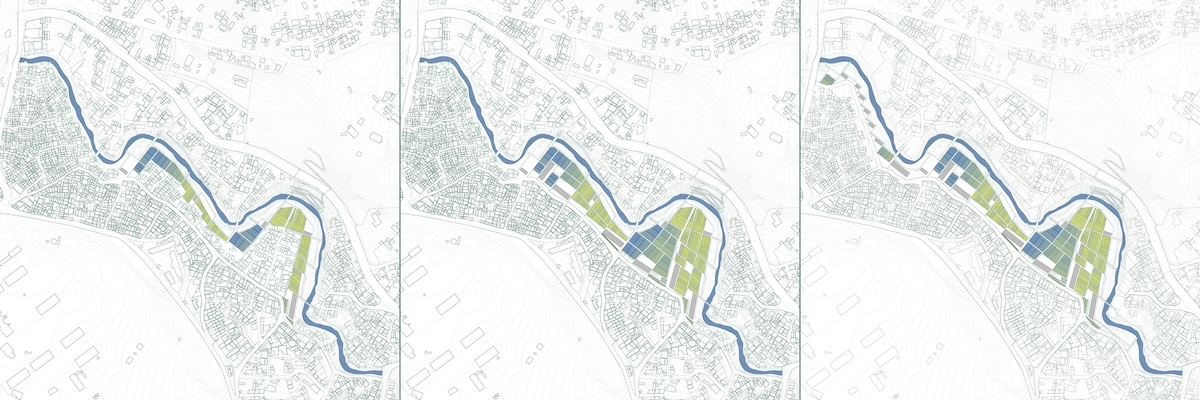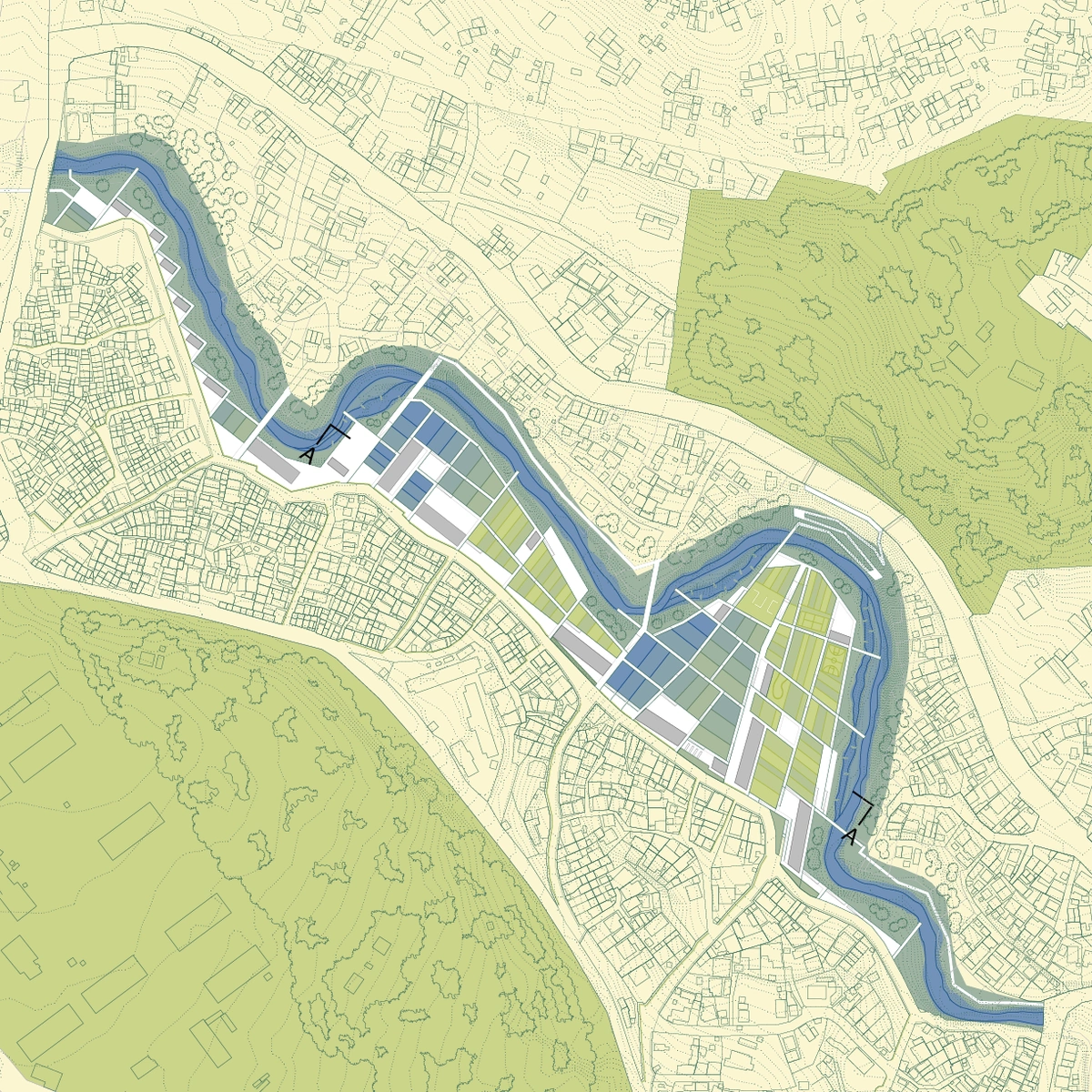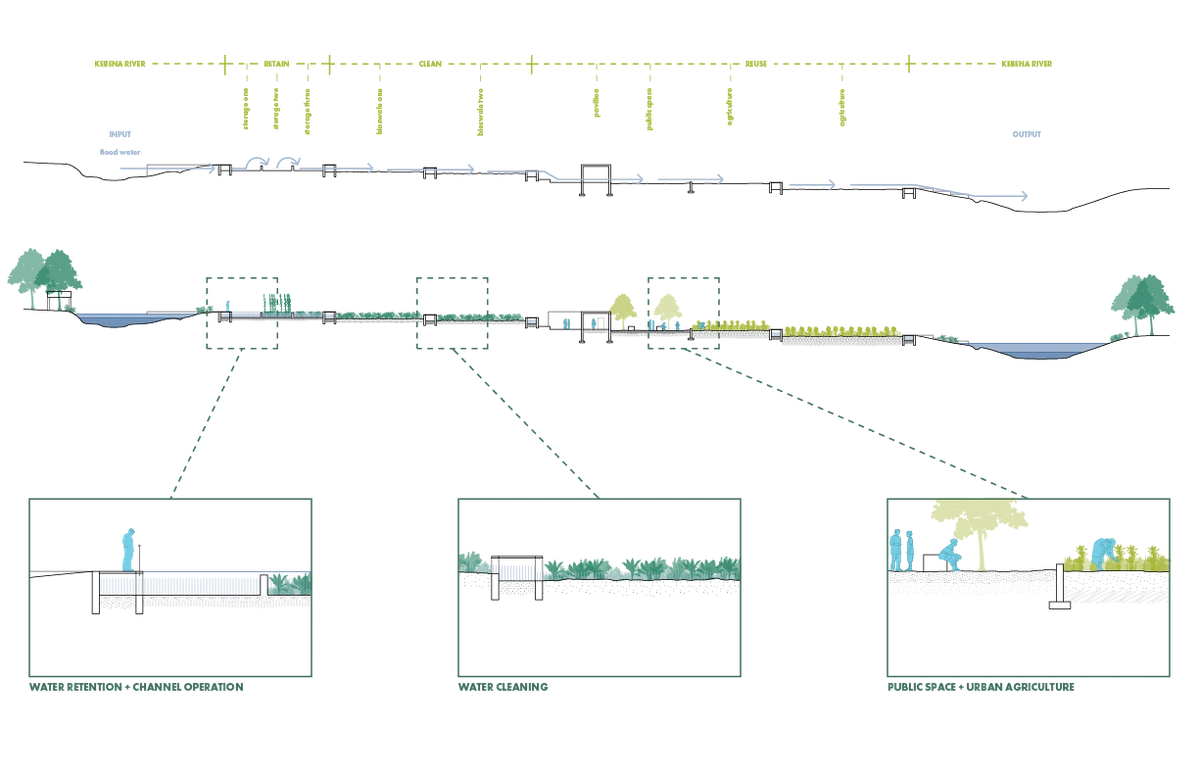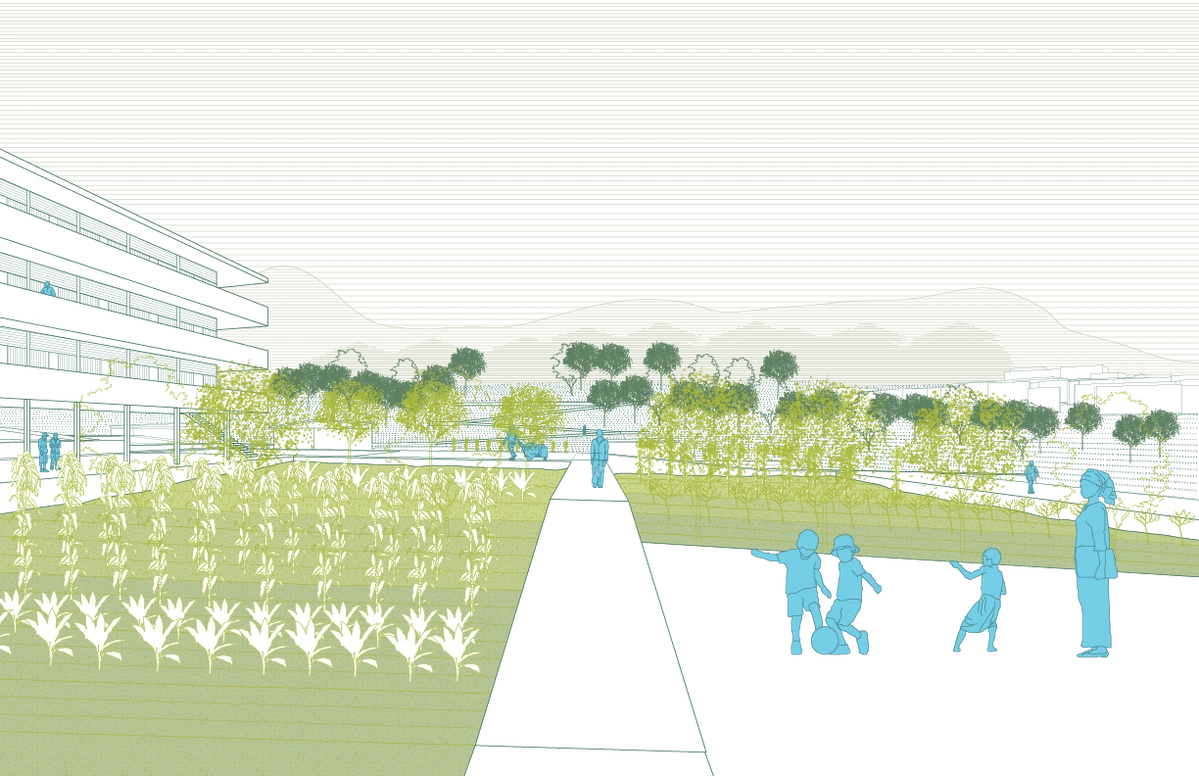The “Floodwater as Catalyst for Resilient Neighborhoods” project proposes a system for the city of Addis Ababa to live with flooding more safely. It is a necessary realization that within the state of climate change, the amount of flooding in the city is only going to worsen and should not be viewed as preventable. The perspective of the community, to some degree, should encourage flooding as it can be benefitted from.
The proposal uses a system of channels and parcels to use floodwater from the upper Kebena River for the growth of the city. Parcels are split into three different types: Retainment, Cleaning, and Reuse. Retainment parcels will hold water until it is needed somewhere else, with a small amount of natural cleaning due to plants within. Retainment parcels allow for water to be stored on-site to use when there is no current flooding event. Cleaning parcels act as bioswales, with plenty of vegetation natural to Ethiopia, helping to make the water useable for citizens. Reuse parcels fulfill multiple programs. Mostly used as space for farming on-site, they can also become public green spaces for recreational activities like basketball and tennis courts or a more relaxing seating area for people to read and drink their coffee. Water is input into the system when flooding occurs and flows through channels from one parcel to the next. Terraced topography allows for gravity to dictate a general path for water to travel. After running through the system, the water will be deposited back into the Kebena River, cleaner than it was before entering.
Housing will be relocated on-site to allow the current residents to continue living in this same river meander. The new housing buildings will be more sustainable and less vulnerable to flooding dangers. The residents of these buildings will also now be provided with new opportunities on-site in the forms of urban agriculture, various public amenities, and general upkeep with the areas. This will help to provide a circular economy and lifestyle—food is grown and managed by people who live on-site and can be sold at open markets on-site as well. Additional features include composting of waste to reuse as soil for agriculture and pedestrian bridges to aid in connectivity across a river that is currently difficult to cross on foot. The site will be rearranged to give the residents more ownership of the area and, therefore, allow them to benefit from floodwater rather than live in fear of it.
In the world’s current state, major storm events will continue to happen at faster and faster rates. This means cities vulnerable to flooding will have to embrace new strategies in order to become sustainable and resilient within these events. The project’s most essential aspects revolve around creating a safe place to live in flood-vulnerable areas while allowing for on-site benefit from cleaning and reusing floodwater. The project creates a cycle for residents involving habitat, growing product (food), and selling product within one relatively small area of the Upper Kebena River in Addis Ababa, Ethiopia. This cycle is one that can be replicated along with plenty more portions of the Upper Kebena River within the same city, or it could be widespread to other cities around the world. Any area within a river meander could implement this strategy to help their residents benefit in an urban area rather than feel vulnerable.

Construction Phasing Sequence 01, 02, 03

Masterplan along Upper Kebena River Meander

Scheme diagram: input, path and output of water

Section with details of water retainment, cleaning and reuse strategies

View from public space, looking towards Upper Kebena River, the urban agriculture and the new housing proposal
The "Addis Ababa River City" Research Project is an academic, international, interdisciplinary, and long-term research project led by Assistant Professor Dr. Ruben Garcia Rubio at the Tulane School of Architecture (USA), which is part of the Saul A. Mintz Global Research Studios. This proposal was developed by the student Michael C. D. Clifton and Prof. Garcia during the Fall semester of 2021.